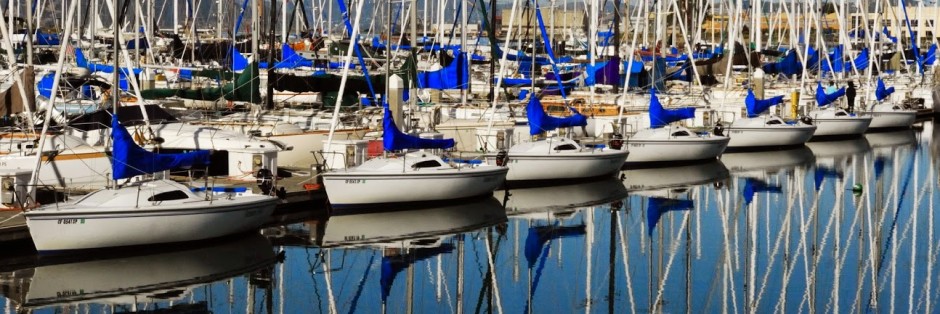We sailors like our “A-” words. They sound salty. The prefix comes from Greek and means “on,” “at,” “or in the state of.” I’m going to assume you know ahoy and ahead and astern and a-lee and aboard and abeam and ashore and aground, but we can list a whole sailbag full of other ones:
A-weather: Towards the wind, just as a-lee means away from the wind.
A-hull: Sometimes in a storm we may douse all sail and lash the helm to leeward. This is called lying a-hull. Similar to “under bare poles.” It’s a very clever storm tactic when your brains are too bashed in to think of anything else, but what’s even more clever is not to be in that storm.
A-try: Similar to a-hull or hove-to. The objective is to get the boat, by whatever sail configuration achieves it, to lie with her bow about six points (67.5 degrees) off the wind so she doesn’t wallow in the trough and capsize. That would wreck your day.
Athwart/athwartships: Across the boat, perpendicular to the centerline. “The traveler runs athwartships.”
A-peak: When the bow is directly above the anchor, the anchor is a-peak.
A-trip: When the anchor breaks free, it is said to be a-trip.
Aweigh: When the anchor is a-trip and no longer on the bottom, it is aweigh (not “away”).
Aloft: Up the mast. Yes, but did you know that alow means down on deck? That’s where you drop your wrench. Of course, below means belowdecks, but that’s not an A-word, is it?
Adrift: This means floating without steerage, guided just by wind and tide. Also, anything aboard is said to have gone adrift if it has come loose and is preparing to clobber you in the head.

Abroad: Spread, as in “She had all plain sail abroad.”
Abaft: Behind. This is a preposition, a relative term used with a reference point as the object of the preposition, as in “abaft the beam.” Its opposite, less commonly heard, is afore; before is more common. Aft is an adjective or adverb, as in the aft cabin or aft starboard scupper.
Awash: An object almost submerged is awash. The deck, for example, or a rock or shoal that can just be seen above the water level.
Avast: This is an order meaning to stop some nautical procedure, as in “avast hauling!”or “avast the Metallica!”
Aback: A sail is aback when the wrong side is filled. This occurs when you tack accidentally, which of course would never happen. It can also be done purposefully, as in heaving-to.
A-choo: There is no evidence that this had its origin in seamanship, but no evidence to the contrary, either. Let’s claim it before the golfers or fishermen do.
A-main: All of a sudden. “The squall hit us a-main.”
A-hoo: I don’t know where I got this but I didn’t make it up. It’s obscure, but distressingly often, I find it useful. It means “messy,” “disorganized,” or “all screwed up.” “After the gale passed, the deck gear was all ahoo.”
Aloof: Yes, this has a nautical origin. In sailing, it originally meant keeping your luff as close to the wind as possible—a-luff—and in particular, was used when failing to point high enough would put you on a lee shore.

Not a Metallica fan, eh?